How various members of the Fung Institute community take initiative to support COVID-19 response
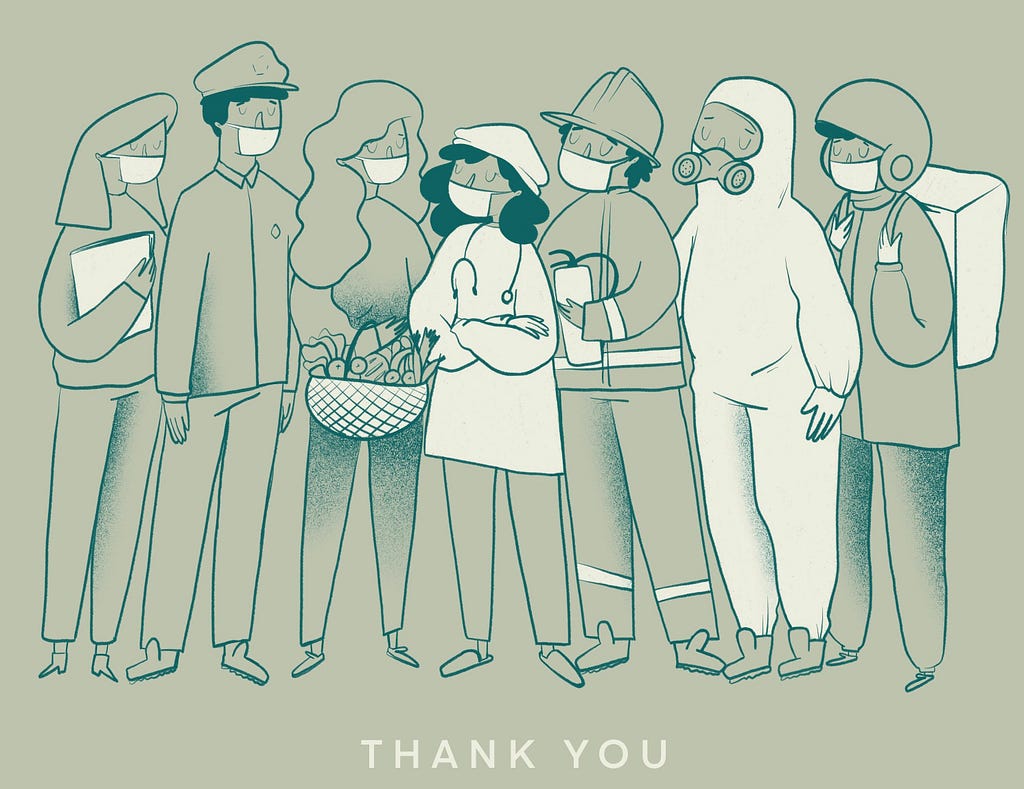
Project Adapt
Highlighting: Honors Fung Fellows Shirley Jiang, Yoyo Ko, Romina Mazooji, and Josie Lee
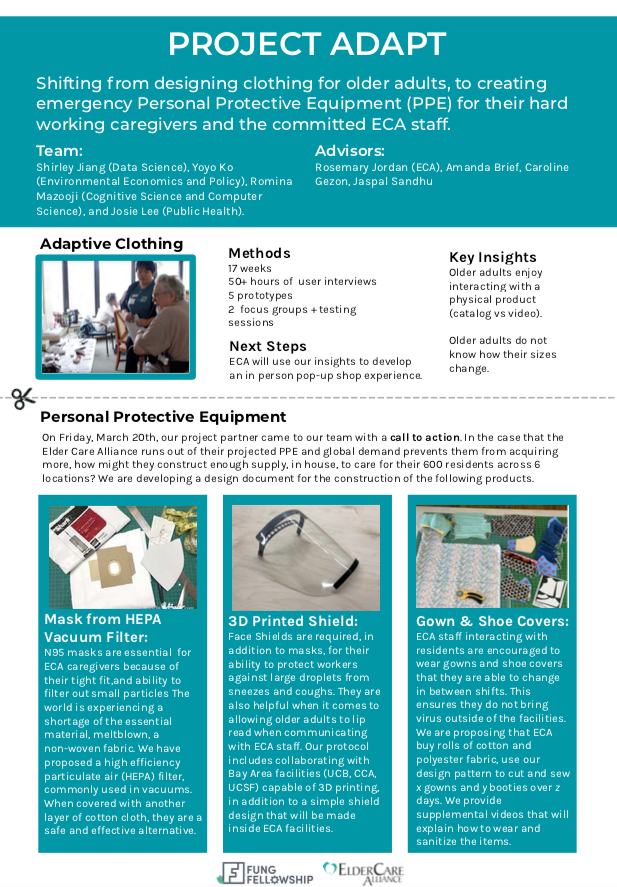
“How might we construct enough in-house supply to care for 600 residents across six locations?”Tasked to support emergency supply needs for Personal Protective Equipment (PPE), they quickly transitioned to develop design documents for various PPE, including masks, shields, and clothing covers. Considering growing resource insecurity from high demands in health equipment, the team compiled a guide with different design methods using more accessible resources. Their mask design utilizes High Efficiency Particulate Air (HEPA) filters typically found in vacuums, while their shield pattern is available to fabricate on 3D printers. They offer instructional guides to create gown and shoe covers using cotton and polyester fabrics along with supplemental videos on sanitization and proper wear. These efforts will go towards better supplying ECA’s personal care workers to continue their work amidst stricter health protocols.
Shield the Bay
Highlighting: Jaspal Sandhu, Fung Fellowship Faculty Lead
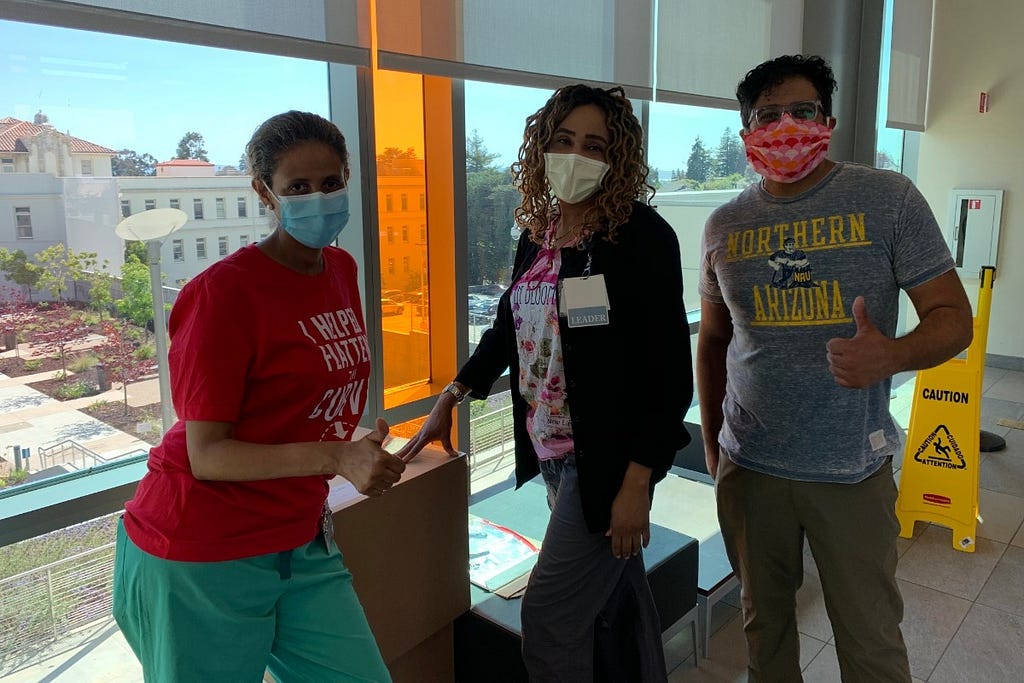
SF Food Friends
Highlighting: MEng and MTM students Nitasha Goyal (MTM ’20) and Marcel Schaack, MEng ’20 (BIOE)
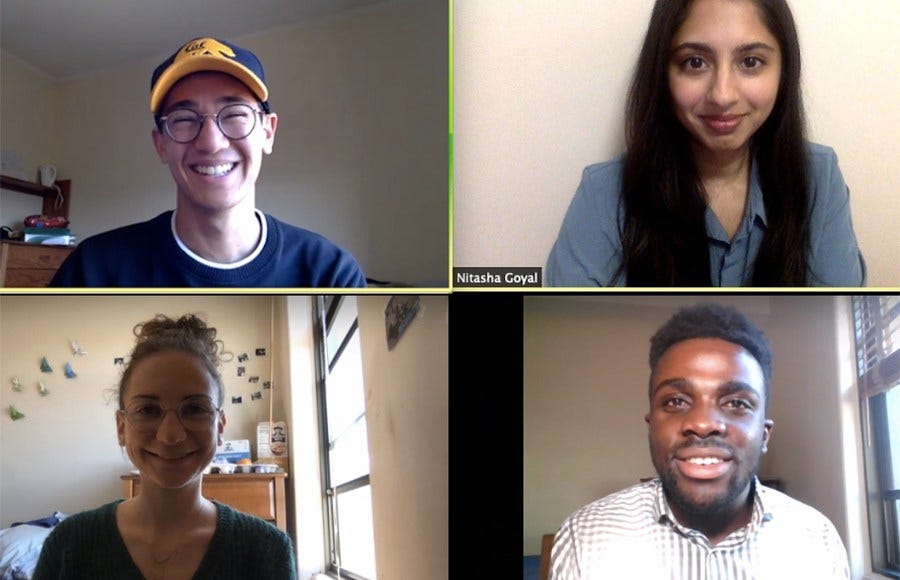
“What further motivated me, more than just I want to help people right now, is just in general like that’s kind of what I chose to study engineering for. To help people using my skill set and solve challenges that communities are facing.” — Oluwatoni Adetayo to the Daily CalUnderstanding a need for communal support and compassion, they seek to empower impacted communities while reducing the spread of transmission. Their platform has grown to mobilize different members of the community from volunteers to grocery markets to social good organizations. Since starting their project, they’ve partnered with Grocery Outlet, Oakland at Risk, Berkeley Mutual Aid, and SF Meals on Wheels. More recently, they’ve joined forces with SF Community Support in an effort to elevate existing support efforts.
VentilatorSOS
Highlighting: Wayne Delker, former Fung Institute Executive Director
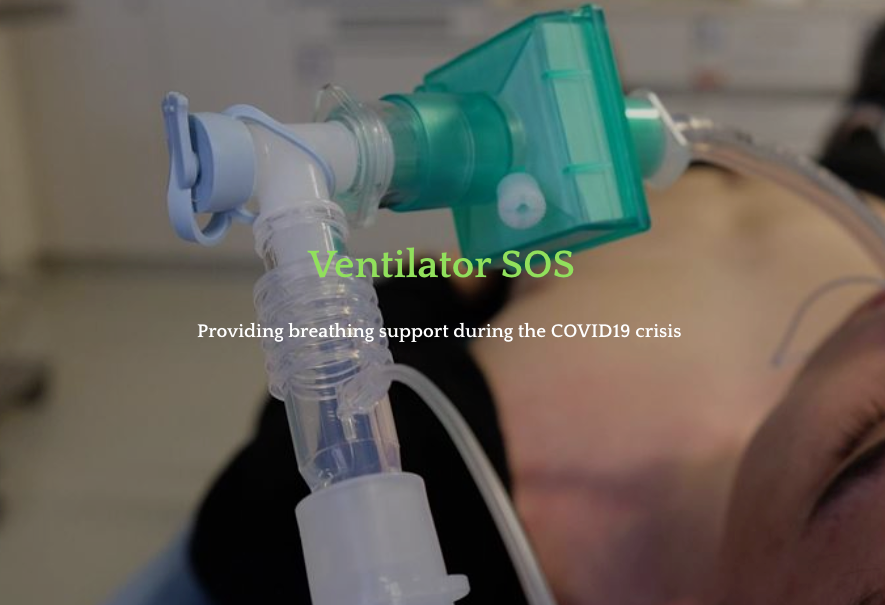
“This has been an incredibly rewarding partnership between the University, business, government and non-profit organizations. We are all volunteers, and everyone we talk to wants to help solve this problem. It has been gratifying to see in these tough times people unite around a common objective of saving lives around the world.” — Wayne DelkerLearn more and support: Project Adapt at tinyurl.com/adaptgowns SF Food Friends at www.sfcommunitysupport.org Shield the Bay at www.gofundme.com/f/shield-the-bay VentilatorSOS at www.ventilatorsos.com // Written by Lyndsay Song // Edited by Lauren Leung and Ashley Villanueva
Fung Institute responds to COVID-19 was originally published in Berkeley Master of Engineering on Medium, where people are continuing the conversation by highlighting and responding to this story.




